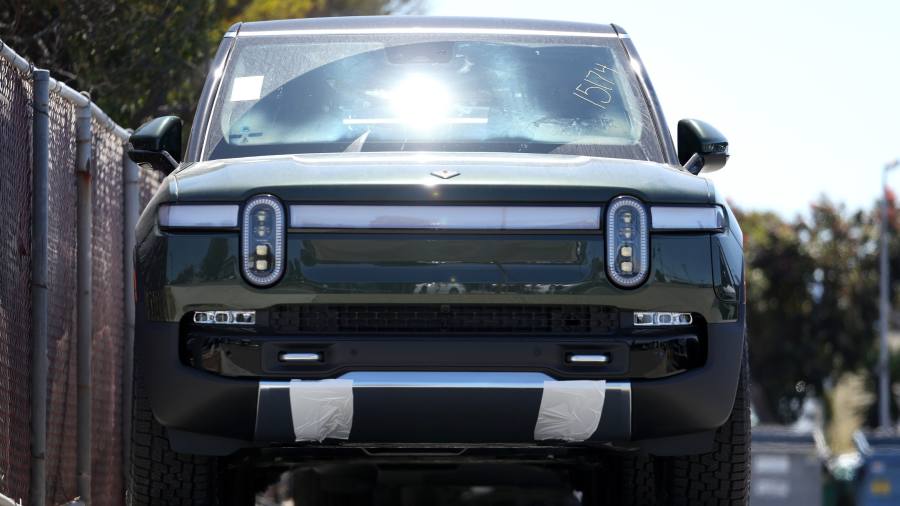Receive free Rivian Automotive, Inc. updates
We’ll send you a myFT Daily Digest email rounding up the latest Rivian Automotive, Inc. news every morning.
The US electric-vehicle maker Rivian said it will make 2,000 more trucks, vans and SUVs than originally planned this year, accelerating output after improvements along its production lines in the second quarter.
The company’s plant in Illinois is now on track to build 52,000 vehicles this year, up from prior guidance of 50,000 and a sharp change from 2022, when Rivian was forced to halve volumes in the face of supply chain problems.
Rivian is one among a handful of closely watched start-ups challenging established carmakers in the race for the growing EV market. The company’s pick-up trucks and SUVs are facing new competition from the likes of Ford, General Motors and Tesla, whose long-delayed Cybertruck is expected to begin deliveries this year.
While EV sales continue to accelerate, they still represent less than 9 per cent of US new vehicle sales.
Progress on Rivian’s assembly lines, easing of clogged supply chains and the increased production of motors made in-house aided the outlook.
Last month the company reported it built nearly 14,000 vehicles in the second quarter, well above Wall Street expectations.
The company remains unprofitable, but it reported a smaller net loss in the second quarter than it did for the same period a year earlier — $1.2bn compared with $1.7bn. It reported an adjusted loss per share of $1.08, better than the $1.41 that Wall Street expected.
Revenue tripled on year to $1.1bn in the latest quarter, mostly through deliveries of about 12,600 vehicles.
“Increasing production is the primary lever in our path to profitability,” Rivian said. Shares rose 1.5 per cent to $25.18 in after-hours trading on Tuesday.
In May, Rivian told investors the supply chain would continue to be a “limiting factor” for production, but today said its outlook for suppliers had improved, allowing it to raise volume guidance.
Chief executive RJ Scaringe said Rivian had maintained “an extreme focus on cost efficiency” during the quarter. It reduced costs for its R1 trucks and SUVs, as well as the electric delivery vans it is making for Amazon, in multiple categories, including labour, logistics, overhead and the cost of materials.
The company has been renegotiating contracts with suppliers and changing engineering designs as it aims to cut costs. It managed to eliminate $131mn in operating expenses during the quarter, said chief financial officer Claire McDonough.
Rivian used $1.4bn in cash for operations in the second quarter, compared with $1.2bn for the same period a year earlier. The increase was due to carrying greater inventory. The company had $9.3bn in cash at the end of the second quarter, compared with $11.6bn as of December.
Read the full article here




